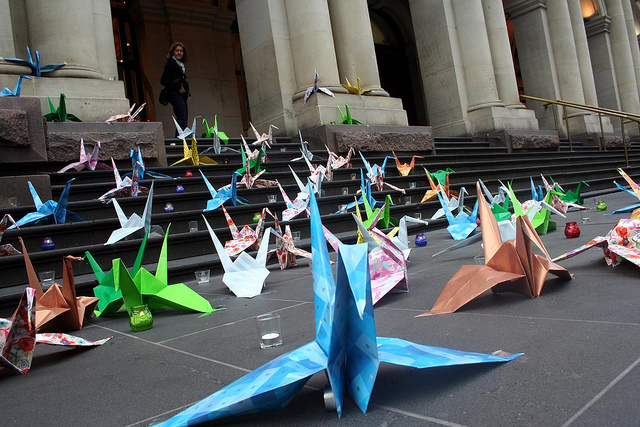I get home from work and check my newsfeed for the 30th time. Refugees are dying, terrified and alone, as they courageously attempt to find refuge; countless acts of violence rage on; police in my country are killing unarmed teenagers and using military weapons to terrify protestors; people’s bodies are being objectified in subtle and overt ways…
There’s so much to feel infuriated about, so much to provoke my anger and call me to action. But my motor is dead. My energy is drained. There’s no charge left. I can’t take any more in.
I need to detox from media and perhaps from all data, but I don’t believe in giving up and tuning out. I feel guilty about shutting it off when many people don’t have that option, but I can’t help anyone when I’m exhausted and enraged.
There is a direct relationship between my ability to offer myself joy and solace and my ability to be a source of inspiration in this world. When I feel at my lowest, I seek out those who are able to remain present with whatever is happening while still knowing how to live in joy. Those who only rail against the way things are are not uplifting. They’re disheartened and it shows.
We need to regularly cleanse our view by remembering that we’re passionate about social justice because it’s good to be in the world. Inherently. Even with all the suffering. If we believe it is our civic duty to be inundated with overwhelming chaos and relentless heartache, we will lose our sense of purpose. We will miss the point.
The Dalai Lama said (I’m paraphrasing) that terrible acts are news because we expect people to be good. On a deep, instinctive level, we’re surprised when people hurt one another. It goes against what feels natural. And yet many things make us question whether some people are naturally evil. That’s the thing about seeing someone from a distance—it creates an illusion. The stance that allows us to question whether killers also have fears is the same emotional distance that lets them kill. The closer we get to a person’s heart, the more we see a mirror image of our own tenderness. We have to remember this. If we don’t believe that humans are good, what are we even fighting for?
The point is that pushing for social progress is not a sign that the system is completely depraved or beyond repair. Pushing for progress is a function of health. No matter how many ideals we meet, we should keep pushing on, just as the cells in our body are constantly being renewed and just as everything that exists is constantly in motion. We need to remember that there’s no final destination to be reached. We don’t have it all figured out and we never will.
Ultimately, we need to remember to be grateful for the goodness of life, to look on the bright side of life and to take stock of how far we’ve come. We need to know that it’s okay to settle into that feeling and be replenished.
That said, it is also our duty to remain awake. At the heart of it, all we can do is be consistently honest with ourselves about the ways we show up in this world. We can encourage conversation in our society and help open hearts and minds, but we can’t give what we don’t have. It doesn’t matter how right we are—if we’re cynical and our hearts are closed because we’re tired as hell, we can’t be efficient agents for progress.
The world may be a messy place, but it’s not a problem to be solved. It doesn’t need our arrogance. It needs our softness, our curiosity and our willingness to have a broken heart. It also needs our fierce self-acceptance and our fiery commitment to learn how to love this world more.
We can do both. We can be both. We must.
Author: Chelsea Balzer
Editor: Evan Yerburgh
Image: Flickr







Read 1 comment and reply